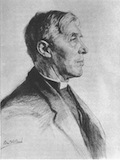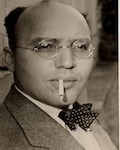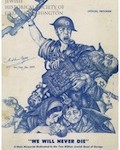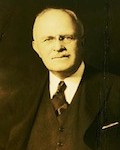In the United States during the Holocaust, most Episcopal leaders, like most leaders of other church denominations, refrained from speaking out about the Jews’ plight. But there were important exceptions.
Two Episcopal schools, the General Theological Seminary (New York) and the Berkeley Divinity School (Connecticut) were co-sponsors of the Inter-Seminary Conference about the Holocaust, held in early 1943. Organized by student activists from the Jewish Theological Seminary, the conference was the first attempt to rally Jewish and Christian religious opinion in support of rescue.
A number of Episcopal leaders were active in the Bergson Group’s Emergency Committee to Save the Jewish People of Europe. Episcopal Bishop Henry St. George Tucker of New York was a featured speaker at its 1943 Emergency Rescue conference. Rev. H.P. Almon Abbot, Rev. Rev. Harry Longley, and Rev. W. Bernard Stevens, the Episcopal bishops of Kentucky, Iowa, and Los Angeles, respectively, were co-sponsors of the conference. Rev. Stevens also co-sponsored the Los Angeles performance of “We Will Never Die,” the dramatic pageant that the Bergson Group used to raise public awareness of the Holocaust.
When the Bergsonites initiated a congressional resolution urging creation of a U.S. government agency to rescue Jewish refugees, eight Christian leaders issued a statement endorsing the resolution, among them two Episcopal bishops, Rev. William Manning of New York and Rev. Thomas Heistand of Harrisburg, as well as Dr. Angus Dun, dean of the Episcopal Theological College and Dr. Russell Stafford, Minister of Boston’s Old South Church.
Sources: Golinkin and Medoff, The Student Struggle Against the Holocaust, pp.46-47;
Wyman, The Abandonment of the Jews, p.144.











